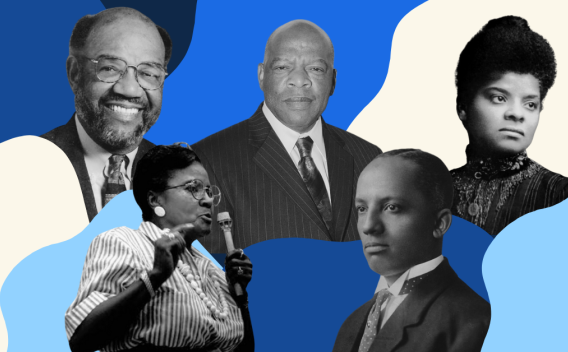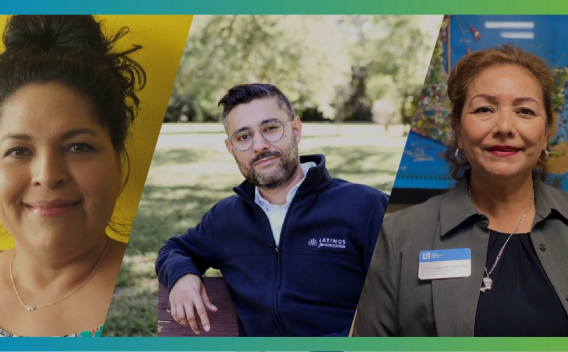By
Published
May 25, 2021
Tags
Amid the reign of Jim Crow in 1905, O.W. Gurley, a wealthy Black entrepreneur, purchased 40 acres of land in Tulsa, Oklahoma’s Greenwood district. He sold much of it to members of Tulsa’s Black community, and Greenwood grew into one of the United States’ most prosperous Black communities, known as Black Wall Street. Black Wall Street thrived culturally and financially, with growing numbers of businesses, restaurants, shops, theatres and even its own school system.
On May 31 and June 1, 1921, that changed when a violent mob of Tulsa’s white residents attacked Greenwood, looting and burning 35 blocks of Black homes and businesses. When it was over, Black Wall Street was destroyed, up to 300 people lay dead, 800 suffered injuries, 10,000 Black residents of Greenwood were left homeless, and many left the city never to return—including O.W. Gurley. Insurance companies termed the attack a “riot,” denying Black residents’ claims totaling $1.8M in damages (nearly $30M today). Only very recently has this tragic event come to be known for what it truly was: the Tulsa Race Massacre.
Those who remained after the massacre rebuilt Greenwood within a few years. Black Wall Street thrived for several more decades. However, in the 1960s and 1970s, the Tulsa city government coerced Black homeowners and business owners to sell their properties for below-market prices, paving the way for a highway cutting off Greenwood’s residential and commercial areas, effectively stunting the district’s economic growth.
Today, 100 years after the Tulsa Race Massacre, Greenwood is experiencing the beginnings of a renaissance due to the hard work of many Black-led organizations. Yet, Greenwood continues to struggle, weighed down like many neighborhoods of color across the country by inequitable public policies and community development practices that sustain racial and economic injustice.
In many ways, Greenwood serves as a microcosm of how our nation’s history of racism continues to impact people and communities of color today. It is clear that the Tulsa Race Massacre was not a singular instance but tied to centuries-long systems that have devalued Black people and communities of color.
We see this in the stories of George Floyd, Breonna Taylor, Daunte Wright and so many other Black and brown people who have lost their lives to a criminal legal system that targets people of color. We see it in an education system that perpetuates inequality because it is funded by local property taxes, causing schools in lower-income areas to have less funding—a gap not made up by state and federal funding. In most places across the country, we see this in schools that do not teach the full story of our nation’s history. (The full story of the Tulsa Race Massacre has only recently begun to be taught in Tulsa schools, and now that the Oklahoma legislature has passed HB 1775, it is unclear that teachers will feel able to teach the facts.)
We see it in a voting system that seeks to limit the rights and influence of communities of color and in an economy laden with policies and practices that perpetuate the racial wealth gap, such as a tax system that disproportionately values capital over labor, lack of adequate access to capital to invest in homes and businesses to build wealth, and lower access to healthcare services and transportation.
While the bias in our systems most acutely affects people of color, all people are negatively impacted. Heather McGhee brilliantly examines this truth in her book The Sum of Us about the economic and societal costs of racism. McGhee asserts that little will change until white people realize what racism costs them too—particularly in reduced economic output that would be generated by a more equal society—and she offers proof that true progress requires Americans to come together across race to accomplish shared goals.
We will not thrive as a country until every person sees themselves in the work of racial equity, rather than threatened by it. Yes, it will take a lot to undo centuries of racially inequitable policies. But we can and must begin the work by supporting initiatives that will put us on a path toward reforming some of our most critical systems.
- We can support investment in community-centered alternatives to the criminal legal system. Currently, issues as complex and multilayered as mental illness, homelessness, drug dependency, and domestic and gender-based violence are met with punitive responses from law enforcement rather than addressing root causes. We need to support local communities in designing an affordable, sustainable and productive public health and safety infrastructure that addresses these issues through access to services, treatment and restorative justice rather than relying almost exclusively on police and punishment. We also need to end our reliance on cash bail and fines and fees to fund our criminal legal system because the current structure has effectively re-created debtor prisons. We need to re-examine our sentencing guidelines and practices because we are keeping many people in jails and prisons who no longer or never did pose a safety risk to our communities.
- We can support social studies curricula that teach accurate American history. Social studies helps students develop the skills to become engaged citizens able to connect historical events to the present. Yet, mainstream K12 social studies curricula too often skim over Black, Indigenous and Latinx history and the central role these communities have played in the American story and rarely include a discussion of policies that result in racially disparate outcomes. And now, some state legislatures are passing bills that make it harder to understand our history by prohibiting public education institutions from teaching students to think critically about the historical connections between race, power and access to opportunity. We must ensure that social studies curricula more accurately reflect the challenges and diverse voices of American history and prepare students to engage thoughtfully with the institutions and communities around them.
- We can support bills that combat voter suppression and protect the right to fair and safe elections. Right now, there are two pieces of federal legislation focused on nationwide voting reform: the For the People Act and the John Lewis Voting Rights Advancement Act. If these bills pass, they will provide more comprehensive and uniform voting procedures, including early voting access, vote by mail and automatic voter registration. In addition, over 700,000 people in Washington, D.C.—a majority of whom are people of color—lack representation in Congress. To give fair voting representation to D.C. residents in the Senate and the House of Representatives, we must pass the Washington, D.C. Admission Act.
- We can support a care economy that values care workers and caregivers. Women—particularly Black women and women of color—and low-wage workers of all races bear the burden of an economy that unfairly advances some at the expense of too many. Our businesses and institutions must support caregivers and care workers with better pay and benefits, including paid leave and affordable childcare. The American Families Plan and The American Jobs Plan proposed by the Biden Administration would lay the groundwork for care infrastructure that allows people to thrive at home, in the workplace and everywhere in between. We are also proud to support the Care for All with Respect and Equity (CARE) Fund, which is investing millions toward care infrastructure that will fuel the economy, improve outcomes for kids and families, promote equity and enable more people to live independently with safety and dignity.
Earlier this year, our team at Schusterman Family Philanthropies was asked to choose the name for an expansion of the Community Food Bank of Eastern Oklahoma located in Greenwood. We chose “The O.W. Gurley Campus.” Come 2022, millions of meals will be distributed to families across eastern Oklahoma from this campus that bears the name of one of Greenwood’s most prominent leaders, who built a thriving Black community but who was then driven out by racial violence.
By recalling the legacy of Black leaders like O.W. Gurley, the Tulsa community can continue to grapple with its painful past and work to heal, repair and ultimately prosper even more. The 1921 Tulsa Race Massacre Commission is focused on remembering the victims and survivors and on educating people about the continuing impact of the race massacre. Tulsa’s new Greenwood Rising History Center is ensuring the story of Black Wall Street is told and its legacy endures.
Already increased awareness of Tulsa’s history of racial injustice is catalyzing community-led initiatives to advance equity in our city. These include promoting Black excellence through Black-led organizations—such as the Black Wall Street Times and the Met Cares Foundation–and prioritizing affordable housing and pathways to homeownership through the Affordable Housing Trust Fund and the Tulsa Economic Development Corporation. We are proud to partner with and support these organizations.
Addressing racism at a societal level is complex and requires us, especially white people, to learn from our past and embrace the discomfort we feel when we acknowledge the shortcomings in our systems and ourselves so we can improve and better enable everyone to lead healthier, fuller lives. It requires us to let go of zero-sum thinking and support policies that give more Americans opportunities to thrive. And the stakes could not be higher; from our criminal legal system to the curricula in our schools, to the right to vote, to the infrastructure of our economy, the systems we have built should serve all Americans rather than continue to perpetuate the centuries of inequality we claim to have left behind.
If we commit to learning and to addressing the inequities in our systems, together we can build a society that truly provides equal opportunity to all and is truly the sum of us all.
Learn more about the Tulsa Race Massacre with our list of recommended resources.






